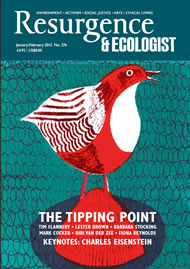In his essay A Wrong Turning in American Poetry, Robert Bly famously critiqued 20th-century poets who “have more trust in the objective, outer world than in the inner world”. By contrast, Jay Ramsay, a British psychotherapist and poet, whose work Bly has praised, is deeply committed to exploring inscapes. And this collection charts his search for truth through the wild places of Scotland, England and Egypt over a 23-year period.
Ramsay’s poems address one of the most essential quests of poets and sages throughout history. He asks: “And can all we are, of heaven and of earth | Combine now?” “Can we risk ourselves | Without hiding or pretending?”
In spending time in those places characterised by ‘wildness’ and ‘strangeness’, this poet believes “you become real”. Hence the journey is an important motif throughout the book. It reflects movement through interconnecting inner and outer landscapes, and is uncertain, represented by the breakdown of the van in which Ramsay is travelling. Uncertainty is compounded by awareness of the difficulty of language to convey emotional and spiritual authenticity: “in this forever | trying | to make words do | what they barely | in fact can—”
An impressionistic style heightens the sense of the poet feeling his way towards moments in time and space where truth resides. Trwyn Meditations, inspired at a cottage in Snowdonia, is a sequence characterised by words set like jewelled clusters across the page, the space around them a sea of breath. And indeed Ramsay describes this writing as ‘poem-meditations’ – moving as they do like the mind alighting on the sensory awareness of body and landscape.
his body
behind closed eyes
filled
with the light’s strength
pumping through him
Like Rumi, the poet orientates himself towards the heart’s truth, where he can quiet the “mind’s fire”, and learn “how to speak heart”. Beside Loch Awe, Ramsay discovers the remains of an old chapel with its font still intact, which becomes “the place of the heart’s wild baptism” – and, interestingly for work spanning so many years, his trajectory towards rebirth finds its culmination in the book’s closing sequence.
But the journey is cyclical – themes such as love and death resurface again and again, and the poet shares some of his personal struggles, including a section called The Mountain, a symbolic terrain charting the end of a relationship. On the way to this mountain, as “Wanderer now motorised”, Ramsay experiences how his “soul needs to breathe”, but then encounters himself “driving into a mirror | of your impatience and irritation”.
Elsewhere the distant presence of a beloved is invoked for solace and inspiration, and there is an echo of her being in landscapes imbued with the sacred feminine – most strikingly in the Desert Vagina and Cathedral of the Breast poems inspired by features of the Sinai desert. The divine beloved is also sought, and sometimes appears as a ‘Father’ figure, while the poet himself finally adopts the practice of a desert father – stepping outside “the ideology and the tribe” to undertake his own vision quest amidst Sinai’s “precious wadi pearls”.
Ultimately the experience of participating in a timeless reality is what this poet seeks. For Ramsay this comes when he moves ‘out of time’, and the sequence set at Culbone Church, high on Exmoor’s edge, maps some of its thousand-year history and reveals “the silence at the depth of your body | reaching like a shelf under your heart”.
In an interview, Bly once said: “When you’re standing near a hollow tree, the poem lies in the resemblance between you and that hollow tree.” This insight resonates beautifully in The Oak, which describes the poet’s encounter with an ancient tree cleft by lightning. Here Ramsay becomes wholly enraptured in a relational process, opening with the ecstatic cry: “Transcendent! Beyond and above everything...”
A rich dialogic exchange unfolds between the man and the tree he describes as “a Samson that has broken his chains”. Again the poet is brought into greater awareness of himself: “How you bring me to my body like a standing sea”. But as the poem closes, we realise that the quest is never-ending: “And I walk round, and I walk round, and there is no ending only the beginning of your truth.”







